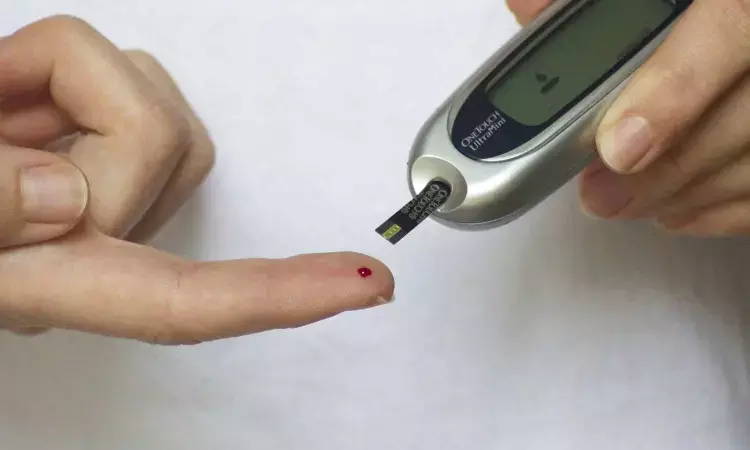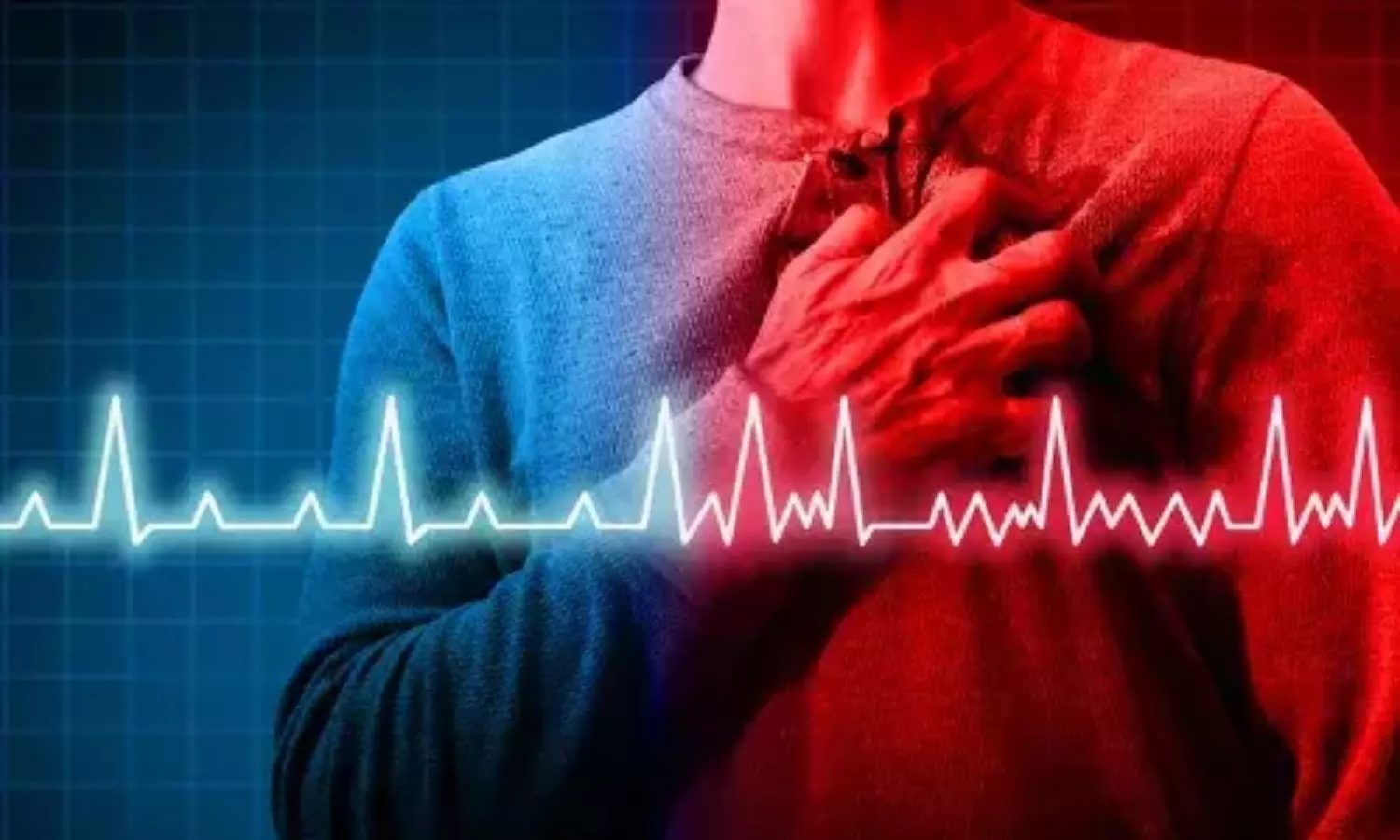- Home
- Medical news & Guidelines
- Anesthesiology
- Cardiology and CTVS
- Critical Care
- Dentistry
- Dermatology
- Diabetes and Endocrinology
- ENT
- Gastroenterology
- Medicine
- Nephrology
- Neurology
- Obstretics-Gynaecology
- Oncology
- Ophthalmology
- Orthopaedics
- Pediatrics-Neonatology
- Psychiatry
- Pulmonology
- Radiology
- Surgery
- Urology
- Laboratory Medicine
- Diet
- Nursing
- Paramedical
- Physiotherapy
- Health news
- Fact Check
- Bone Health Fact Check
- Brain Health Fact Check
- Cancer Related Fact Check
- Child Care Fact Check
- Dental and oral health fact check
- Diabetes and metabolic health fact check
- Diet and Nutrition Fact Check
- Eye and ENT Care Fact Check
- Fitness fact check
- Gut health fact check
- Heart health fact check
- Kidney health fact check
- Medical education fact check
- Men's health fact check
- Respiratory fact check
- Skin and hair care fact check
- Vaccine and Immunization fact check
- Women's health fact check
- AYUSH
- State News
- Andaman and Nicobar Islands
- Andhra Pradesh
- Arunachal Pradesh
- Assam
- Bihar
- Chandigarh
- Chattisgarh
- Dadra and Nagar Haveli
- Daman and Diu
- Delhi
- Goa
- Gujarat
- Haryana
- Himachal Pradesh
- Jammu & Kashmir
- Jharkhand
- Karnataka
- Kerala
- Ladakh
- Lakshadweep
- Madhya Pradesh
- Maharashtra
- Manipur
- Meghalaya
- Mizoram
- Nagaland
- Odisha
- Puducherry
- Punjab
- Rajasthan
- Sikkim
- Tamil Nadu
- Telangana
- Tripura
- Uttar Pradesh
- Uttrakhand
- West Bengal
- Medical Education
- Industry
Cardio and cerebrovascular risk in maturity onset diabetes of young comparable to type 1 & 2 diabetes patients

A new study found that maturity-onset diabetes of the young (MODY) that is detected by genetic analysis has a greater prevalence than clinical diagnosis and has a risk of incident cardiovascular and cerebrovascular events comparable to that of type 1 and type 2 diabetes. The study results were published in The Journal of Clinical Endocrinology and Metabolism.
Maturity-onset diabetes of the young (MODY), a rare cause of diabetes, is a group of monogenic disorders characterized by autosomal dominantly inherited non-insulin dependent forms of diabetes classically presenting in adolescence or young adults before the age of 25 years. Diagnosing MODY or type 1 or 2 diabetes in the early stages is necessary to avoid cardiovascular and cerebrovascular complications. Researchers conducted a study to compare the incident risk of cardio-cerebrovascular events in maturity-onset diabetes of the young (MODY), type 1 diabetes, and type 2 diabetes.
Using whole exome sequencing (WES) type 1 diabetes, type 2 diabetes, and MODY were diagnosed. The occurrence of the first major adverse cardiovascular events (MACE), including acute myocardial infarction, heart failure, stroke, unstable angina pectoris, and cardio-cerebrovascular-related mortality was the primary endpoint. Cox proportional hazards models were applied and adjusted to calculate hazard ratios (HRs) and 95% confidence intervals (CIs) for the incident risk of MACE in type 1 diabetes, type 2 diabetes, MODY, and MODY subgroups in comparison with people without diabetes (control group).
Key findings:
- Type 1 diabetes, type 2 diabetes, and MODY accounted for 2.7%, 68.1%, and 11.4% of 26198 diabetic participants from the UK Biobank.
- Nearly 1028 MACEs occurred in the control group, 70 events in type 1 diabetes patients, 5020 events in type 2 diabetes patients, and 717 events in MODY during a median follow-up of 13 years.
- The hazard OF MACE in HNF1B-MODY was highest among MODY subgroups.
Thus, during a follow-up of 13 years, it was found that T1 diabetes, MODY, and T2 diabetes had a 2.15-, 5.8- and 7-fold increase in MACE risk compared to healthy individuals.
Further reading: Wu HX, Chu TY, Iqbal J, et al. Cardio-cerebrovascular Outcomes in MODY, Type 1 Diabetes, and Type 2 Diabetes: A Prospective Cohort Study [published online ahead of print, 2023 Apr 24]. J Clin Endocrinol Metab. 2023;dgad233. doi: 10.1210/clinem/dgad233
BDS, MDS
Dr.Niharika Harsha B (BDS,MDS) completed her BDS from Govt Dental College, Hyderabad and MDS from Dr.NTR University of health sciences(Now Kaloji Rao University). She has 4 years of private dental practice and worked for 2 years as Consultant Oral Radiologist at a Dental Imaging Centre in Hyderabad. She worked as Research Assistant and scientific writer in the development of Oral Anti cancer screening device with her seniors. She has a deep intriguing wish in writing highly engaging, captivating and informative medical content for a wider audience. She can be contacted at editorial@medicaldialogues.in.
Dr Kamal Kant Kohli-MBBS, DTCD- a chest specialist with more than 30 years of practice and a flair for writing clinical articles, Dr Kamal Kant Kohli joined Medical Dialogues as a Chief Editor of Medical News. Besides writing articles, as an editor, he proofreads and verifies all the medical content published on Medical Dialogues including those coming from journals, studies,medical conferences,guidelines etc. Email: drkohli@medicaldialogues.in. Contact no. 011-43720751




